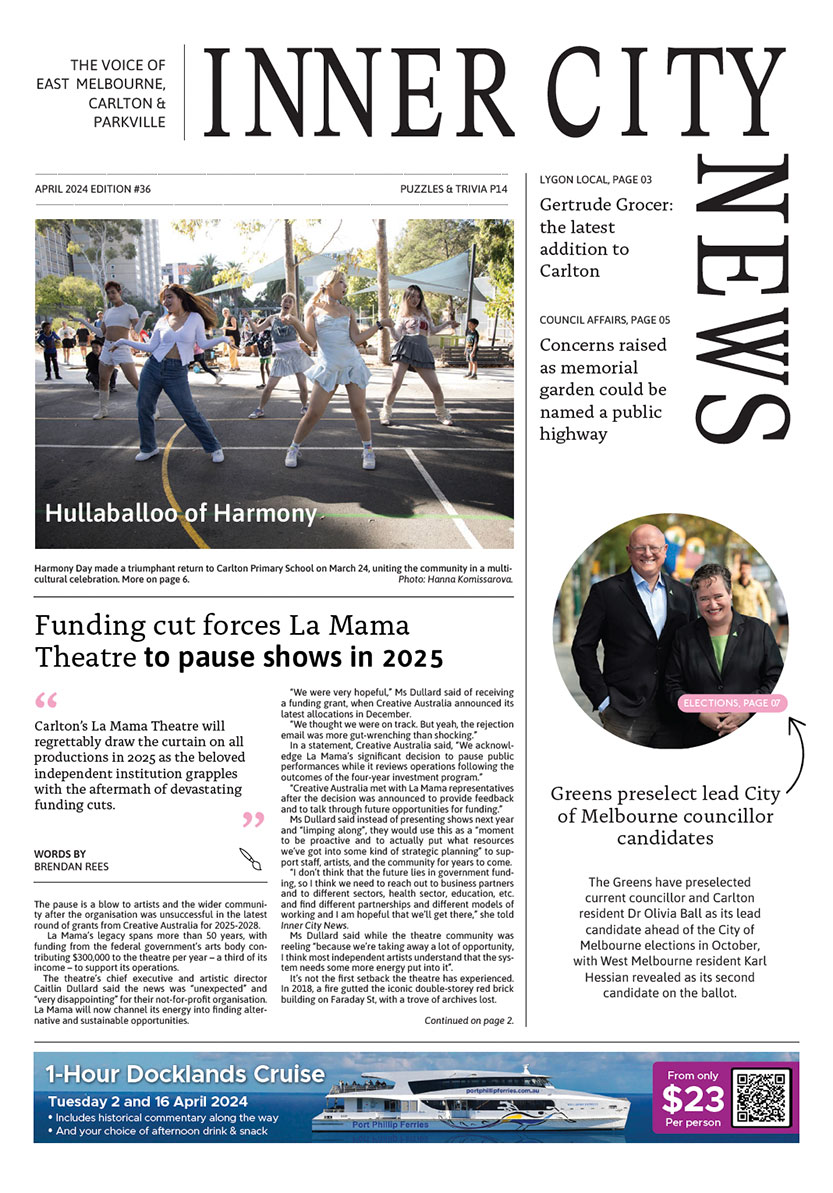Looking at racing from a different angle
An East Melbourne resident is selling shares in racehorses he bought at the recent auctions in Melbourne and Queensland, while offering insights into the racing industry.
Rob Slade, a former accountant, has almost 40 horses on his books and won more than $3 million with his best.
His approach to racing is one of getting involved rather than expecting profits.
“I think you have to be prepared to take a chance, have a positive outlook and give it a fling,” he told Inner City News.
“It’s a kind of therapy. Once it gets into your blood it’s intoxicating. A horse can bring you to tears.”
Rob bought two horses at the recent Inglis Melbourne Premier Sale. The first was a yearling off Think Diamonds, a mare he’d syndicated and raced.
“She was a good filly who came second in a three-year-old fillies race leading up to The Oaks. She had good ability.”
The yearling won’t be given a name until shares are sold and then he’ll run in the two-year-old race in the first weekend of October this year.
Rob is selling 20 five per cent shares in this horse, plus others, ranging in price from $3500 to $11,000. Upkeep is about $170 a month. Each of these shares can be divided up again and syndicated.
Syndicate agents make no guarantees for investors. You don’t join a syndicate for a steady return or as a substitute for super, Rob explained.
All you can do is check the health and parentage and select a good trainer.
One of his horses, Alinghi, won $3.5 million. She won four group one races including the 2005 Newmarket Handicap, one of the two major races on Super Saturday, and was sold as a broodmare for a substantial sum.
There were 14 owners. She unfortunately died giving birth.
Another horse, whose name he forgets, did not even get a start. The trainer told him not to run it. “You’ll beat it. Don’t race it, the trainer said.”
Alinghi cost $80,000 but he said you can’t predict a horse’s form from the price. “The horses don’t know how much they cost. The next superstar might cost $20,000. I can’t see inside their head and heart.”
The funds are managed by Slade Bloodstock. Wins are divvied up and places go to trainers towards the upkeep.
Rob started in the industry in 1997 and has about 38 horses on the books. They all run with his colours, white with yellow and black bands.
A commemorative board of his great win at Flemington covers one wall of his flat.
Owning a horse can give you a more informed approach to betting, he maintains “Once you own a horse you look at racing from a different angle. You understand what goes into it.”
He said owners go to the main meetings on a Saturday. “They invest in a horse. The sky’s the limit. The prize money is tax free. The only time you’re stung, (it’s totally wrong), is by capital gains tax if your asset cost more than $10,000 and you sell it.” •

Carlton language school championed by Ukrainian refugee






 Download the Latest Edition
Download the Latest Edition